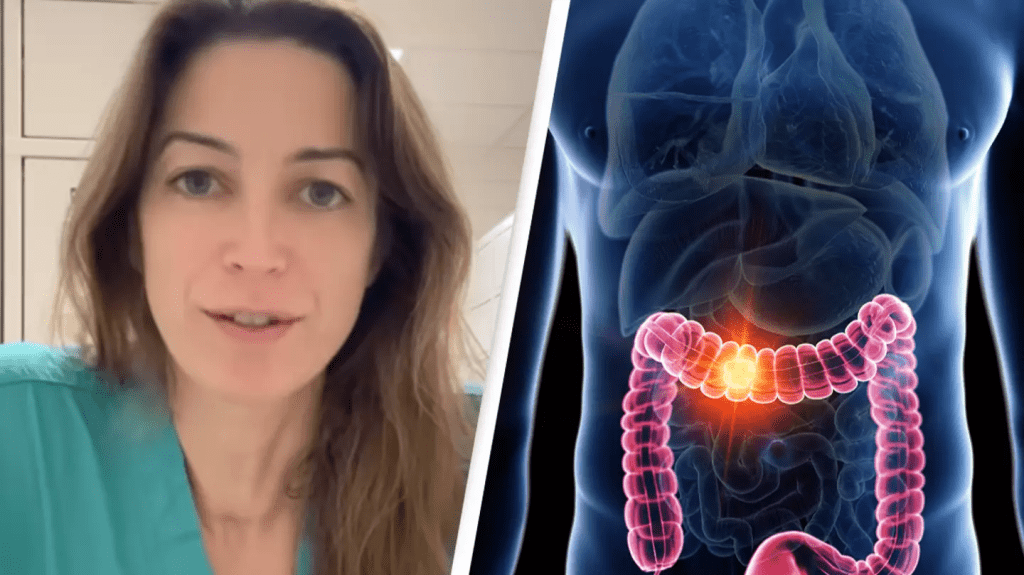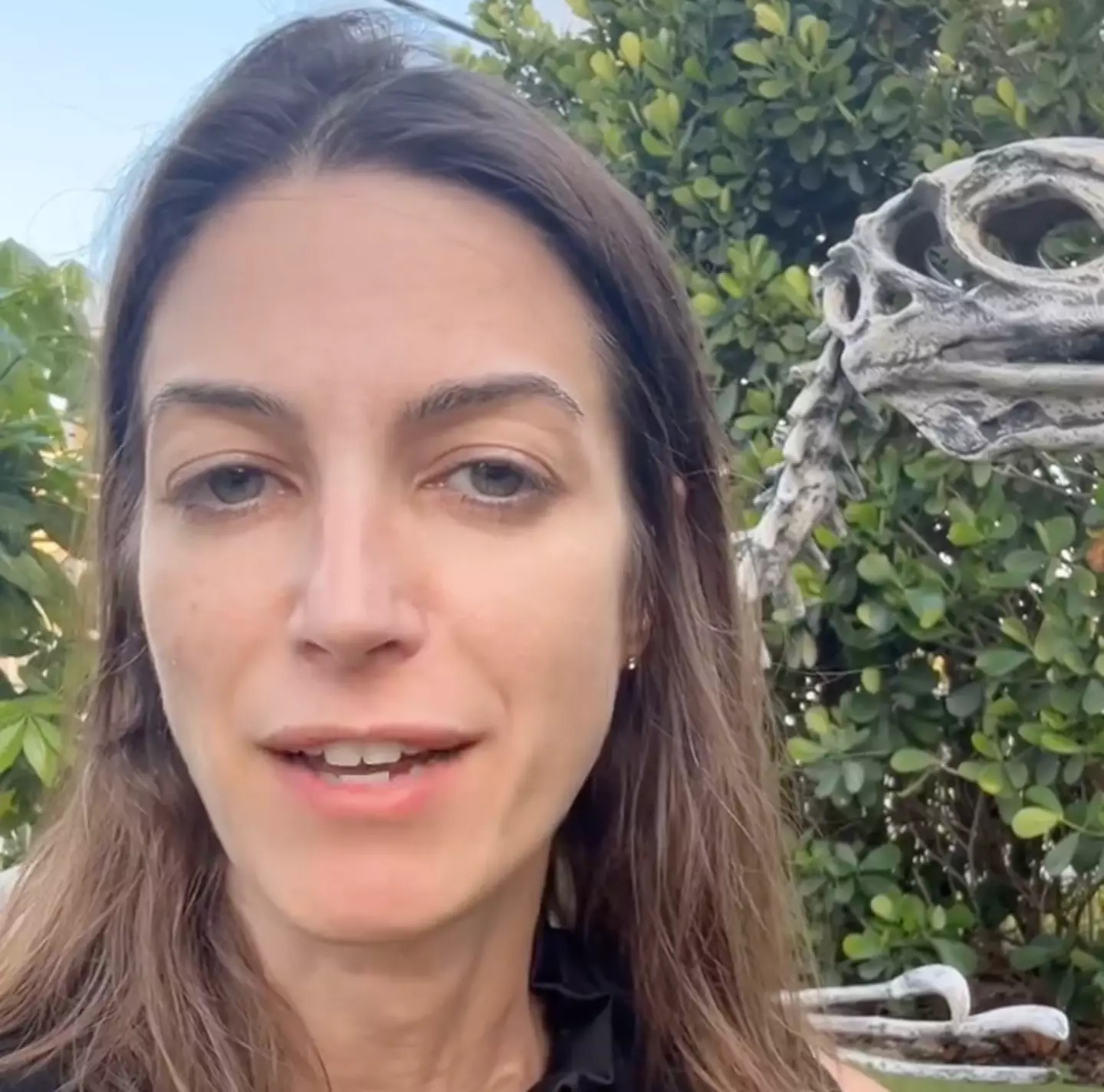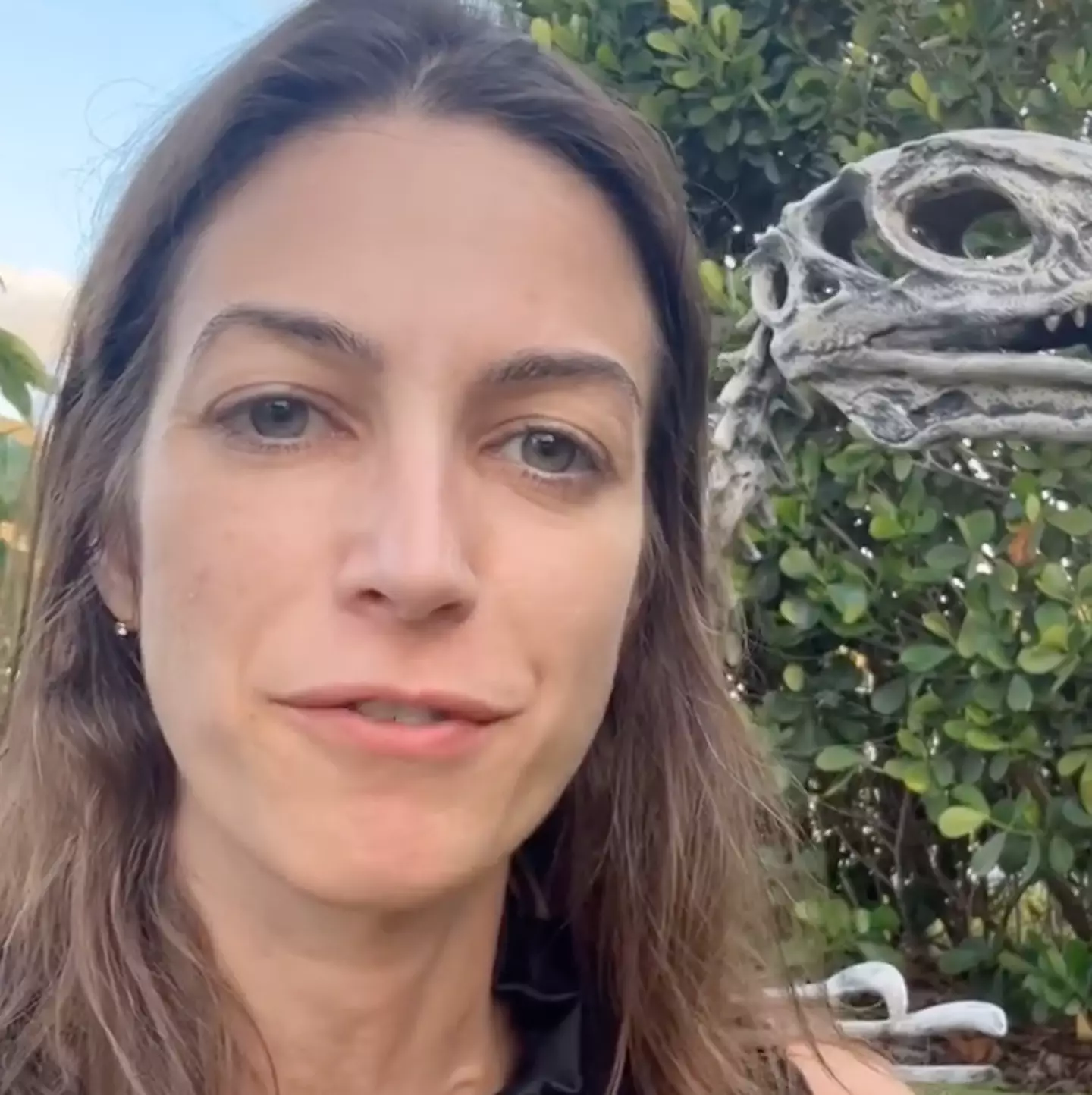When Dr. Lauren Juyia, a 37-year-old gynecologist from Florida, first noticed subtle changes in her body, cancer was the last thing on her mind. She was young, active, and had two young children. But the two symptoms she experienced set her on a life-altering journey. Now cancer-free, Dr. Juyia is sharing her story to raise awareness about these early signs of colon cancer—symptoms that many may overlook but could be life-saving.
A Subtle Start: Recognizing the First Signs of Cancer

Dr. Juyia’s experience began in August 2022, when she noticed a few unusual changes in her body. Unlike the typical symptoms associated with colon cancer—such as changes in bowel movements, blood in stool, or unexplained weight loss—her initial signs were far more subtle. The first symptom she recalls was a feeling of “pelvic heaviness,” which eventually developed into a noticeable pelvic mass.
“I was shocked when I felt it,” she shared. With her background in obstetrics, she knew something was off. To her, the size of the mass felt comparable to that of a 16-week pregnancy, an experience that urged her to seek medical attention immediately.
Symptom 1: Pelvic Heaviness and a Noticeable Mass
One of the most alarming symptoms Dr. Juyia experienced was a sensation of pelvic heaviness. As a gynecologist, she knew this feeling wasn’t typical. For many women, pelvic heaviness could indicate various conditions—ovarian cysts, fibroids, or other benign issues. But for Dr. Juyia, this symptom developed into a palpable mass, which ultimately led her to seek further testing.
She scheduled an ultrasound at HCA Florida Oak Hill Hospital, where the results confirmed a large mass on her ovary. What shocked her most was how rapidly the mass grew; within two weeks, it expanded from eight centimeters to a staggering 24 centimeters. “I had never seen anything benign, meaning not cancer, grow that fast before,” Dr. Juyia explained. Her instincts told her this was something serious.
Symptom 2: Unexplained Fatigue
Looking back, Dr. Juyia realized she had been experiencing mild fatigue in the weeks leading up to her diagnosis. At first, she brushed off the tiredness as a consequence of her busy life. As a mother of two young children and a full-time doctor, she was accustomed to feeling a bit tired. But as she now emphasizes, fatigue—especially unexplained fatigue—can sometimes be an early warning sign of serious conditions like cancer.
In Dr. Juyia’s case, this fatigue was subtle and easily overlooked. “I was a little tired in the afternoon for about two months prior to the ultrasound,” she explained. Her active lifestyle and recent experience with night feedings made her assume it was just typical exhaustion. However, she now urges others to take note of unusual fatigue, especially when combined with other subtle symptoms.
The Shocking Diagnosis: From Ovarian Mass to Colon Cancer
Initially, Dr. Juyia and her doctors suspected ovarian cancer, given the location and size of the masses. But further testing revealed a more surprising diagnosis: stage 4 colon cancer. The cancer had spread beyond her colon, affecting her ovaries, uterus, appendix, and abdominal area—a diagnosis that left her reeling.
“When I found out it was colon cancer, it felt surreal,” she said. As a medical professional, Dr. Juyia had seen many patients face similar challenges, but facing it herself was a completely different experience. She was determined to fight it head-on, beginning an intensive course of chemotherapy while balancing her duties as a doctor and a mother.
Why Early Detection Matters, Even for the Young

Colon cancer is often associated with older adults, with screenings typically recommended starting at age 45. However, Dr. Juyia’s story highlights a critical issue: younger adults can also be at risk. In her case, early screening wasn’t an option because she was well under the standard age for colon cancer testing.
Dr. Juyia encourages people under the screening age to remain aware of their bodies and any unusual changes. “People younger than the screening age (45) should still be paying attention to symptoms, because we’re not eligible for screening usually,” she says. Younger bodies can sometimes mask symptoms, tolerating abnormalities that older bodies might flag sooner. This resilience, while beneficial, can sometimes delay the diagnosis of serious conditions.
Common Symptoms of Colon Cancer and Why They’re Often Missed
Colon cancer has a wide range of symptoms, some of which can mimic common digestive or other health issues. The Centers for Disease Control and Prevention (CDC) lists several typical symptoms of colon cancer, including:
- Changes in bowel movements, such as constipation or diarrhea
- Blood in stool
- Persistent abdominal pain or cramps
- Unexplained weight loss
- Bloating or feelings of discomfort

For Dr. Juyia, the classic symptoms of colon cancer were nearly absent. Instead, her warning signs were subtle: a sense of pelvic heaviness and mild fatigue, both easy to brush off in daily life. This experience underscores the importance of not only recognizing common symptoms but also paying attention to any unusual physical sensations or persistent changes.
A Message of Hope and Resilience
Dr. Juyia’s journey with cancer was challenging, but her story is also one of resilience and recovery. After months of chemotherapy and another surgery in March 2023, she received life-changing news: her scans showed no evidence of disease. Today, Dr. Juyia continues her work as a doctor and shares her experience to raise awareness about early symptoms and the importance of proactive health checks.
Throughout her treatment, she found strength by continuing her practice, using work as a positive distraction. She openly shares her journey online to encourage others to prioritize their health and seek medical advice whenever something feels off.
Encouraging Preventive Care and Vigilance for All Ages
Dr. Juyia’s story highlights the importance of early detection, especially in younger adults who may not meet standard screening guidelines. She emphasizes that everyone, regardless of age, should stay alert to their bodies’ signals and advocate for their health.
Whether it’s a new ache, unusual fatigue, or a feeling of heaviness, Dr. Juyia reminds us not to ignore persistent or unusual symptoms. Her journey shows that proactive care, no matter how minor a symptom may seem, can be critical in catching diseases like cancer early and improving outcomes.
Conclusion: Listen to Your Body, Act on the Signs
Dr. Lauren Juyia’s experience is a powerful reminder to listen to our bodies. The two subtle symptoms she experienced—a feeling of pelvic heaviness and fatigue—became the clues that led to her early intervention and treatment. For anyone experiencing unusual symptoms, especially those under the age of routine screening, her story is a call to take action.
While cancer is always a daunting diagnosis, early detection can make all the difference. Dr. Juyia’s message is clear: pay attention to your body, advocate for yourself, and seek medical advice when something feels wrong. Early vigilance, even for minor signs, is a crucial step toward maintaining health and, ultimately, saving lives.


